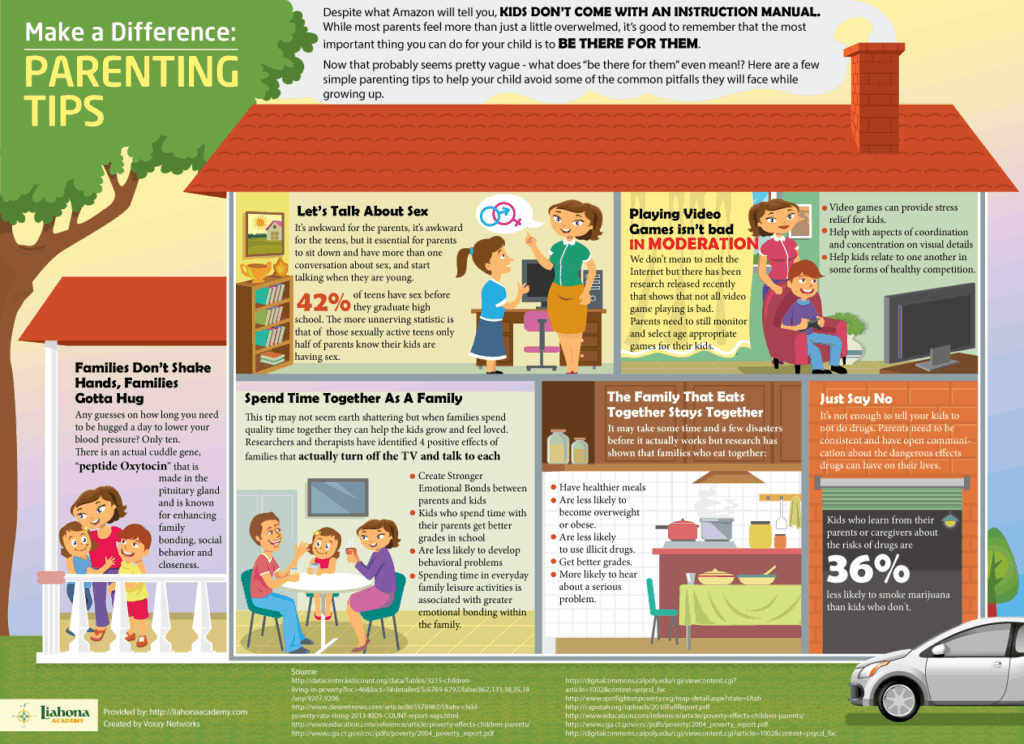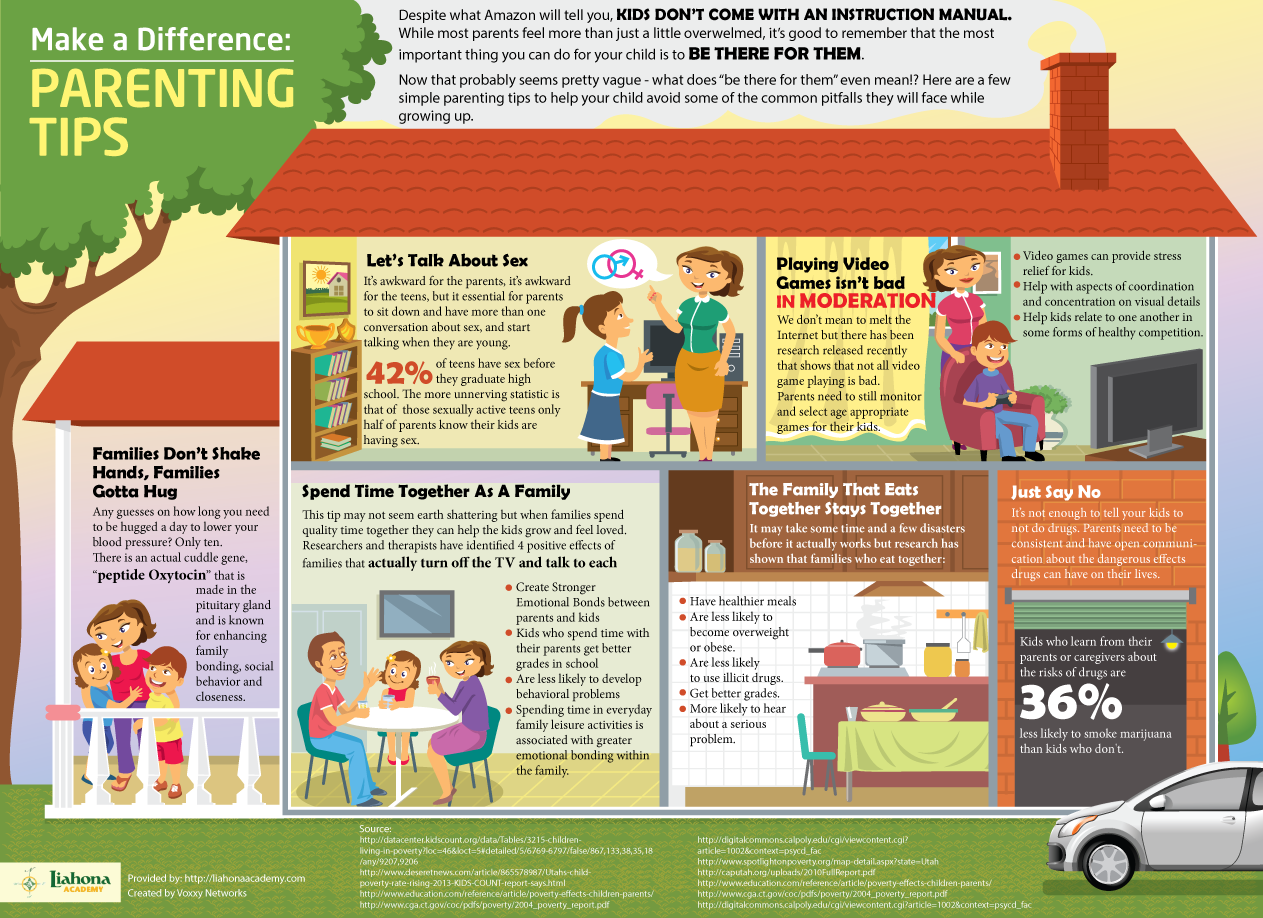
Unlocking Potential: Great Parenting Advice for Raising Thriving Children
Parenting, a journey filled with immense joy and profound challenges, often leaves individuals searching for guidance. The quest for great parenting advice is a universal one, spanning cultures and generations. This article delves into evidence-based strategies and practical tips designed to empower parents in fostering healthy, happy, and successful children. We’ll explore key areas, from building strong emotional connections to setting effective boundaries, all with the aim of providing actionable great parenting advice.
Building a Strong Foundation: Attachment and Emotional Connection
The cornerstone of effective parenting is a secure and loving attachment. Children who feel securely attached to their parents are more likely to develop emotional resilience, self-confidence, and healthy relationships later in life. Great parenting advice often emphasizes the importance of responsiveness. This means being attuned to your child’s needs, both physical and emotional, and responding in a timely and sensitive manner.
The Power of Presence: Active Listening and Quality Time
In today’s fast-paced world, it’s easy to get caught up in the demands of work and daily life. However, dedicating quality time to your child is crucial for building a strong connection. Put away your phone, turn off the television, and engage in activities that your child enjoys. Active listening is another vital component. Pay attention to what your child is saying, both verbally and nonverbally. Show genuine interest in their thoughts and feelings. This demonstrates that you value their perspective and are there to support them.
Empathy and Validation: Understanding Your Child’s Emotions
Children experience a wide range of emotions, from joy and excitement to sadness and frustration. Great parenting advice highlights the importance of empathy and validation. When your child is upset, try to understand their perspective. Acknowledge their feelings, even if you don’t agree with their behavior. Instead of dismissing their emotions, say things like, “I understand you’re feeling angry because…” or “It’s okay to feel sad when…” This helps children learn to identify and manage their emotions in a healthy way.
Setting Boundaries and Expectations: Guiding Behavior Effectively
While love and affection are essential, children also need clear boundaries and expectations. Great parenting advice stresses the importance of setting age-appropriate rules and consistently enforcing them. This provides children with a sense of security and helps them learn to make responsible choices. However, boundaries should not be arbitrary or punitive. They should be based on fairness, respect, and a clear understanding of the child’s developmental stage.
Positive Discipline: Focusing on Teaching and Guidance
Traditional methods of discipline often rely on punishment, such as spanking or yelling. However, research has shown that these methods can be harmful and ineffective in the long run. Great parenting advice advocates for positive discipline, which focuses on teaching and guiding children’s behavior. This involves setting clear expectations, providing explanations for rules, and using consequences that are logical and related to the misbehavior. For example, if a child throws a toy, the consequence might be to take the toy away for a period of time.
Consistency is Key: The Importance of Follow-Through
Consistency is crucial for effective discipline. Children need to know that the rules apply to them all the time, not just when you’re in a bad mood. This means working with your partner to establish consistent expectations and consequences. When you say you’re going to do something, follow through. This teaches children that you mean what you say and that they can trust you.
Fostering Independence and Resilience: Empowering Children to Thrive
Great parenting advice also emphasizes the importance of fostering independence and resilience. Children need opportunities to learn and grow, to make mistakes, and to overcome challenges. This helps them develop a sense of self-efficacy and the ability to cope with adversity.
Encouraging Exploration and Risk-Taking (Within Reason)
Allow your child to explore their interests and try new things, even if it means taking some risks. This doesn’t mean letting them engage in dangerous activities, but rather providing them with opportunities to step outside their comfort zone and learn from their experiences. Encourage them to participate in extracurricular activities, to try new hobbies, and to take on age-appropriate responsibilities.
Teaching Problem-Solving Skills: Equipping Children for Success
Help your child develop problem-solving skills by encouraging them to think critically and come up with their own solutions. When they encounter a challenge, resist the urge to immediately solve it for them. Instead, ask them questions like, “What do you think you could do to fix this?” or “What are some different options you could try?” This empowers them to take ownership of their problems and develop the skills they need to succeed in life. [See also: Raising Emotionally Intelligent Children]
The Importance of Self-Care: Taking Care of Yourself as a Parent
Parenting is a demanding job, and it’s easy to neglect your own needs. However, great parenting advice recognizes that self-care is essential for effective parenting. You can’t pour from an empty cup. When you’re feeling stressed, overwhelmed, or burned out, you’re less likely to be patient, understanding, and responsive to your child’s needs.
Prioritizing Your Physical and Mental Health
Make time for activities that help you relax and recharge, such as exercise, meditation, or spending time in nature. Eat a healthy diet, get enough sleep, and seek professional help if you’re struggling with your mental health. Remember that taking care of yourself is not selfish; it’s an investment in your ability to be a good parent. Great parenting advice always includes a heavy dose of self-compassion.
Building a Support Network: Connecting with Other Parents
Connect with other parents who can offer support, encouragement, and advice. Join a parenting group, attend community events, or simply reach out to friends and family members who have children. Sharing your experiences with others can help you feel less alone and more equipped to handle the challenges of parenting. Remember, you’re not in this alone. Seeking great parenting advice is often best done in community.
Adapting to Different Stages of Development: Tailoring Your Approach
Parenting is not a one-size-fits-all approach. What works for a toddler may not work for a teenager. Great parenting advice emphasizes the importance of adapting your parenting style to your child’s developmental stage. Understand the unique challenges and opportunities that each stage presents, and adjust your expectations and strategies accordingly.
Understanding Child Development Milestones
Educate yourself about child development milestones. This will help you understand what to expect from your child at different ages and stages. It will also help you identify any potential developmental delays or concerns. There are many resources available online and in libraries that can provide you with information about child development.
Communicating Effectively with Children of All Ages
Communication is key at every stage of development. Learn how to communicate effectively with your child, taking into account their age and maturity level. With younger children, use simple language and visual aids. With older children, be open and honest, and encourage them to share their thoughts and feelings. [See also: How to Talk to Your Teenager]
Conclusion: Embracing the Journey of Parenthood
Parenting is a journey, not a destination. There will be ups and downs, successes and failures. The most important thing is to be present, loving, and supportive. Seek great parenting advice when you need it, but trust your instincts and remember that you know your child best. By focusing on building strong connections, setting clear boundaries, and fostering independence, you can help your child thrive and reach their full potential. The journey of parenthood is a challenging one, but with the right tools and mindset, it can also be the most rewarding experience of your life. Remember to be patient with yourself, and celebrate the small victories along the way. Ultimately, great parenting advice is about creating a loving and supportive environment where your child can grow and flourish.

